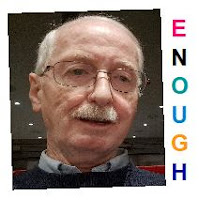If you've read articles on this blog, going back to 2008, you'll see that the Tutor/Mentor Connection (1993-present) and Tutor/Mentor Institute, LLC (2011-present) have been trying to build a comprehensive, map-based, understanding of what non-school, volunteer-based tutor/mentor and learning programs exist in Chicago and where more are needed. Over the past several years my capacity to do this work has been greatly reduced so I'm pleased to be able to point to others who seem to be filling this space.
Below is one slide from today's STEM Pathways Coop meeting, where Deanna Howlett of Northwestern University spoke to attendees about the Citywide State of STEM Landscape Survey.
View the slides at this link. Below is another slide from the presentation, showing the process intended to create understanding, and change, where change is needed.
I've shared ideas and strategies with those doing this research and participated in the meetings when they were on-line. I look forward to more.
Today I did participate in an on-line webinar, hosted by Brookings.edu, focused on Racial Equity. Here's one Tweet that I shared during the event.
Visit
#BrookingsRacialEquity on Twitter and see my contributions and posts by others. As I write this post and share my ideas on Twitter and other platforms I'm trying to model a practice that I wish thousands had been duplicating for the past 10 years.
The Internet is a huge depository of information. But unless people are aggregating it in libraries like mine, or sites like
https://www.brookings.edu/blog/how-we-rise/, it will be difficult to organize learning communities that are needed to build understanding and public will necessary to impact public policy in America. In addition to its blog and huge library of research articles you can find video archives of past webinars if you search
in this section on the Brookings site.
Share this information. Build learning circles.
You can be the
YOU in this graphic by sharing my post and forwarding my Tweets, along with those of other people and organizations that I point to in my library and blog articles.
We need people collecting the information, but we also need people evangelizing and trying to get growing number of people to look at the information that's been collected. Then we need even more people who are facilitating understanding and helping people connect and work together to implement solutions, in places where data maps show more people need extra help. Colleges, public schools and faith based organizations have been doing this for centuries. We need to duplicate that process and that requires some major benefactors who make long-term investments.
I've written several hundred articles on the Tutor/Mentor blog, that just focus on this "learning" process.
Here's one.
The Step 3 graphic above is part of
this concept map, showing 4 strategies that I've followed since starting the Tutor/Mentor Connection in 1993. I invite others to build their own version and apply this in their own work.
Thanks for reading. I hope you'll borrow from what I share here, on the
Tutor/Mentor Blog and on the
Tutor/Mentor Institute, LLC website. Create your own versions. Share your own maps and blog articles. Teach others to do the same.
You can connect with me on Twitter, Facebook, LinkedIn, Instagram and Mastodon.
If you want to help fund my work,
visit this page and send a small contribution.
If you want to adopt this work and embed it in your university, I'd love to hear from you.






No comments:
Post a Comment